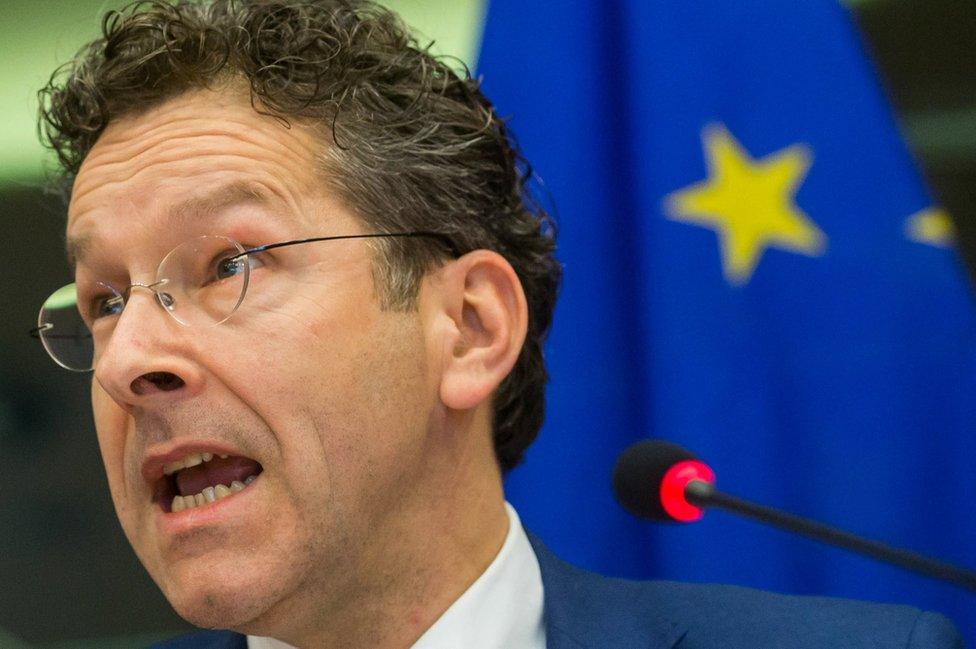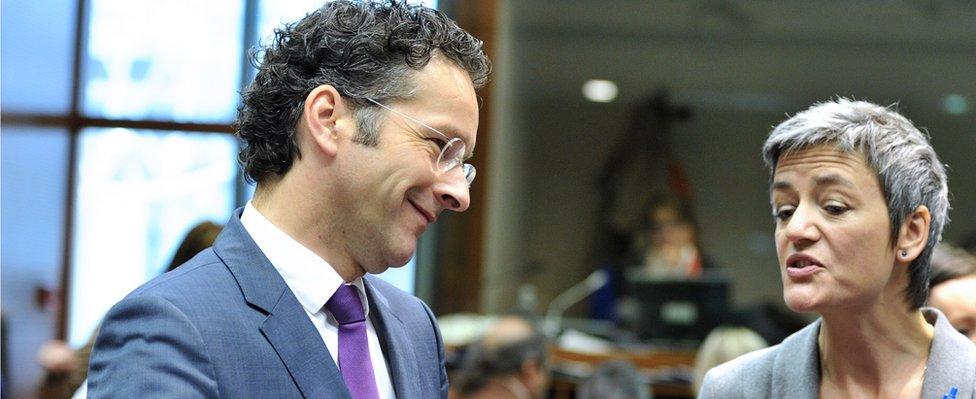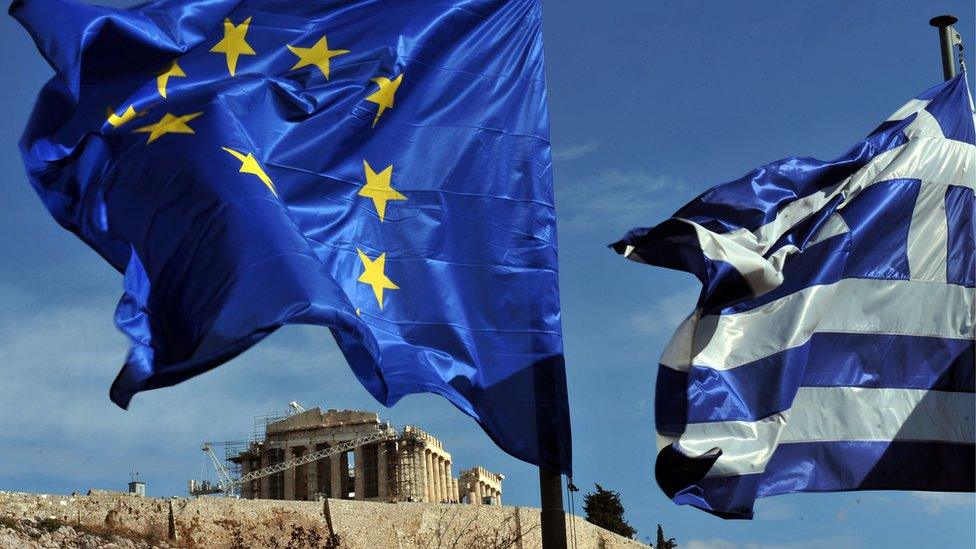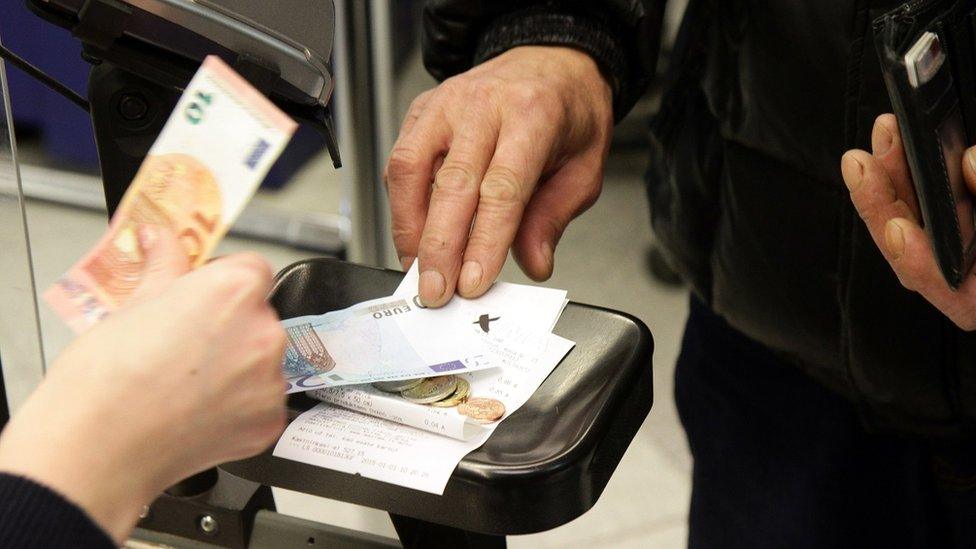Fury at eurozone chief Dijsselbloem's 'racist' remarks
- Published

Mr Dijsselbloem insisted his comments were not meant to refer to any country in particular
The head of eurozone finance ministers, Jeroen Dijsselbloem, is facing calls to resign over comments seen as an attack on indebted southern European states.
Anyone demanding EU solidarity also had obligations, he said. "I can't spend all my money on liqueurs and women and then go and ask for your support."
Portuguese Prime Minister Antonio Costa said he should stand down.
The Eurogroup chief said his message had been misunderstood and he had no intention of resigning.
Condemning the remarks as racist and xenophobic, Mr Costa said Europe would only become credible as a common project "on the day Mr Dijsselbloem is no longer president of the Eurogroup or when there is a clear apology to the countries and peoples who have been profoundly offended by these comments".

European Commissioner Margrethe Vestager (R) said she would not have made the remarks
Italy's ex-prime minister, Matteo Renzi, took to Facebook to condemn "stupid remarks against southern Europe, starting with Italy and Spain".
European Competition Commissioner Margrethe Vestager said the words were "wrong".
Several Spanish politicians were also offended by the remarks. Gabriel Mato, a centre-right MEP, said the Dutch minister had lost his neutrality and credibility. Another Spanish MEP, Ernest Urtasun, said the remarks were unacceptable and full of "completely false stereotypes about the countries of the south".
Mr Dijsselbloem insisted his comments, in an interview with Frankfurter Allgemeine Zeitung, applied to all countries, north and south, and underlined the importance of solidarity and reciprocity within the union.
In a statement to the BBC, he apologised for what he termed "Dutch directness" that he attributed to a strict Calvinistic culture.
"I regret that my message was misunderstood and I regret that it emerged as north against south. I don't experience a north-south division, also not in the Eurogroup.
"The sentence referring to alcohol and women was about myself. I said that I cannot expect that if I spend my money in a wrong way that I can then ask for financial help."
The Dutch finance minister played a key role in negotiating a deal on the Greek debt crisis and, although part of a centre-left party himself, he was accused by some on the left of promoting austerity policies.
His Labour party was the main casualty in last week's general election in the Netherlands, losing 29 of its 38 seats.
He will lose his job as Dutch finance minister when a coalition government is agreed in the coming weeks. His four-year term as Eurogroup head is due to finish in January 2018.
- Published17 June 2016

- Published21 January 2013

- Published2 March 2017

- Published21 March 2017
